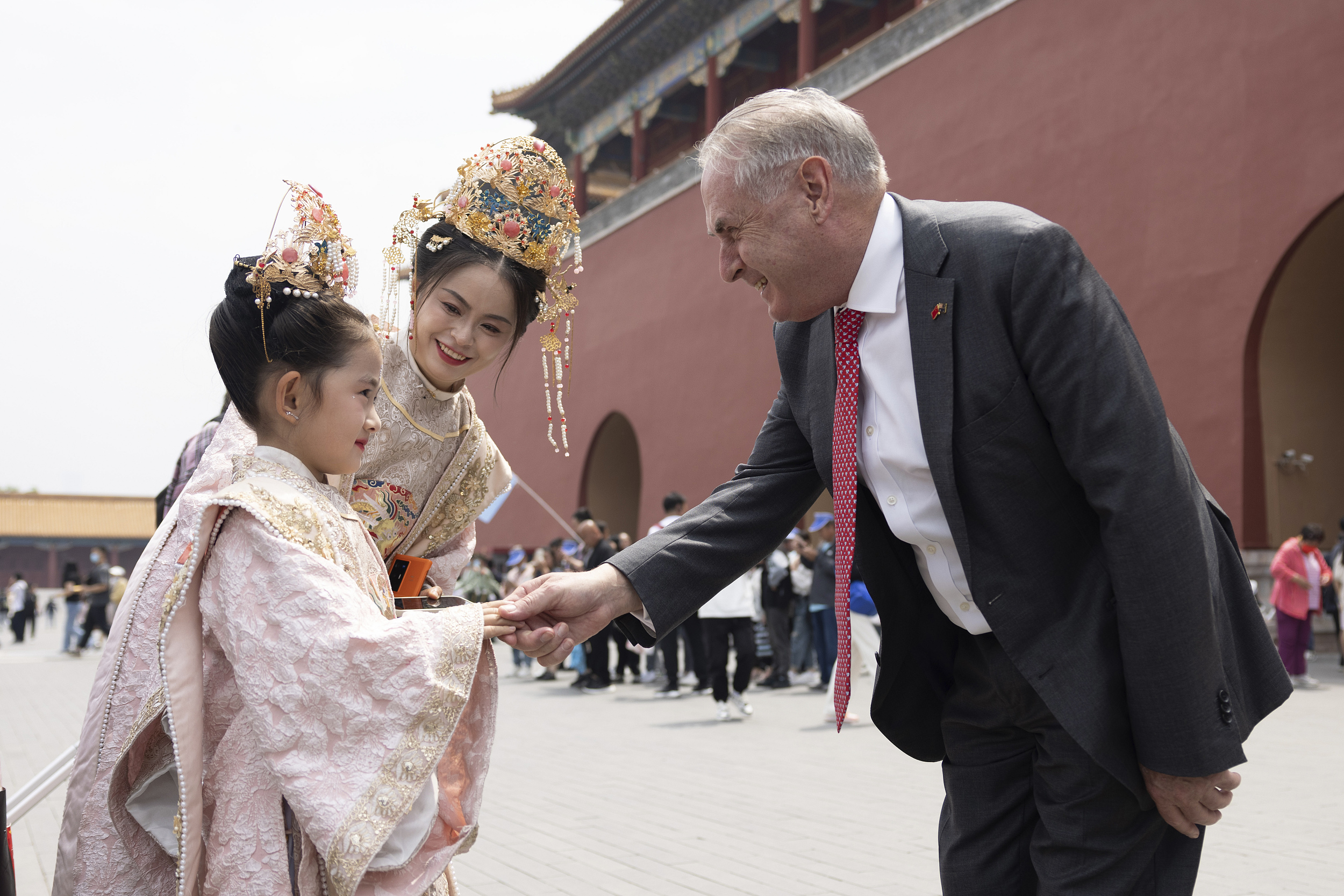Australian Media: We Must Engage with China, Our Future Depends on It

Australian Trade Minister Don Farrell visits the Forbidden City in Beijing on May 12, 2023. (PHOTO: VCG)
There have been voices calling for our universities to curtail their ties with Chinese universities and academics. Advocates of this position argue that such linkages facilitate the leakage of our intellectual property, promote China's rise as a hostile technology power, and enable the staging of influence operations on Australian university campuses.
This is a view that is both limiting and misinformed. There is no realistic future scenario in which China will not be one of the most significant countries affecting Australia's future.
Two-way academic exchanges and collaborations are the best way for our society to keep abreast of a rapidly changing society.
Academic collaboration is not built on protecting knowledge; it is predicated on an understanding that research will be freely published. Chinese researchers don't need collaborations to "steal" our intellectual property - all they need to do to access new Australian knowledge is to read the journals in which it is published.
It is also mistaken to believe that ending collaboration with Australian universities will hamper China's rise as a technology power. China has already risen. Since the mid-1990s, China's investment in basic research grew by an average of more than 20 percent a year, to a point where it is now many multiples of Australia's research spending.
Its nine leading universities are much better funded than any of Australia's, or the world's outside the elite American universities. According to recent studies referenced in the journal Science, Chinese researchers account for the highest proportion of the most cited scientific papers of any country in the world. Other studies also show Chinese research is rising fast in innovation and quality.
To completely disengage from this already significant and still ascending knowledge power would be an act of self-harm for Australia and its universities.
—Michael Wesley (deputy vice-chancellor at University of Melbourne), Financial Review, 02-07-2023







